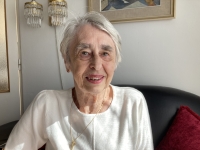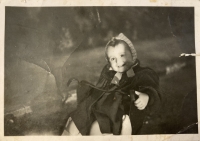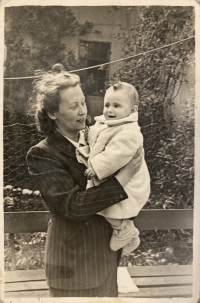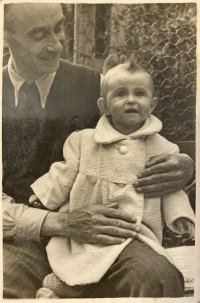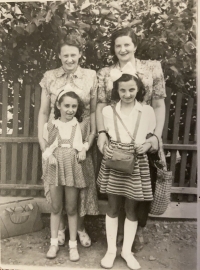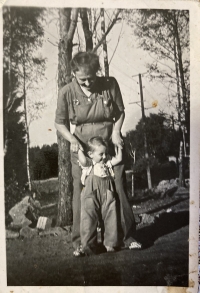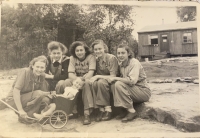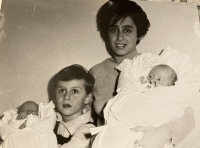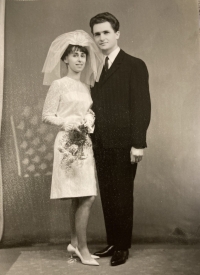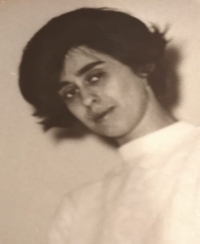“My life consists of happy coincidences ... Everyone who has survived has been a lucky man, but what I have experienced is extra happiness.”

Download image
Věra Schlossová, as a married woman Fischerová, was born on August 21, 1943 in Kežmarok. Gisela, her mother did not come from a large family, as she had only one brother, who was engaged in accounting. Her father was a teacher at a local jewish school and her mother died shortly before the war. On the contrary, Věra’s father, Henrich Schloss, was one of thirteen children. The families of both parents were jewish families who kept the holidays and were aware of their faith, but not on a bigoted scale. Henrich ran the family business, a petrol depot, and he and his loved ones were granted an exemption. Věra had no other siblings. Věra was born in the turbulent years, in the years of rapid transports to concentration camps. Mother’s father and brother were transported at the beginning of the war. She avoided it because a local boy, Henrich Schloss, joined her as his wife. They only knew each other by sight, but on the basis of an illegally arranged marriage certificate, she also received an exception. However, Henrich’s siblings were not exempted. The newlyweds never underwent a real wedding. Soon his father was caught on the street and taken away. Mother Gisela wandered with her one-year-old Věra until she got an overnight stay in nearby Ľubica. From there, together with the messenger, she went for a week to the family acquaintance Beckerová, to Tatranská Kotlina. After the unfortunate statement, on December 6, 1944, they were all deported to the Ravensbrück concentration camp. She and her daughter survived and were liberated by the english soldiers. They completed a healing stay in Sweden. Later, they learned about their father, that he lives and he is in Prague. He was very sick and emaciated, weighing only thirty eight kilograms. In 1950, they returned together as a family to Kežmarok. His father was given back the ruined business, which was soon taken away again due to communism. Věra graduated from an 11-year school in Kežmarok and subsequently in 1961 she decided to study german and slovak languages in Bratislava. At the philharmonic concert, she met the love of her life, the jewish boy Lajo. The wedding took place in 1966 and later they had three beautiful children. Věra worked all her life as a high school teacher and her husband as a school assistant. At present, they live a peaceful retirement life and enjoy from time to time, the cheerful presence of grandchildren.
